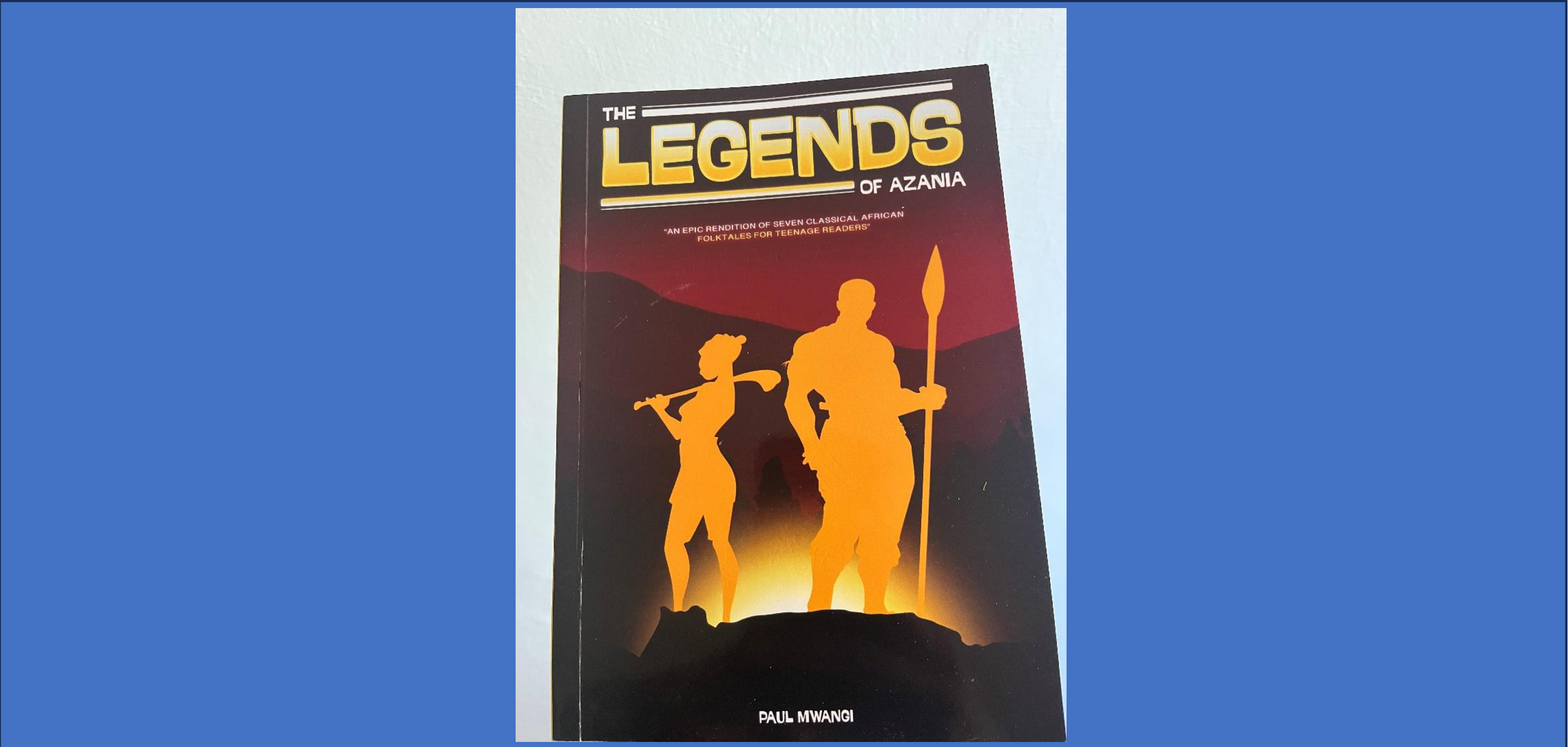

This is not merely a retelling. It is a reinvention, one that strips away the tribal labels traditionally affixed to legendary figures, presenting them as pan-African archetypes.
Mwangi’s approach challenges the entrenched notion that heroes like Lwanda Magere and Mumbi belong exclusively to specific ethnic groups.
Instead, he positions them within the broader, unifying context of Azania, a term historically used to refer to the African continent.
What makes this collection truly captivating is Mwangi’s insistence on making these ancient narratives accessible and relatable to contemporary readers, especially teenagers, ensuring that the magic of African folklore does not fade into obscurity.
Mwangi's decision to detach these legendary characters from their ethnic origins is both audacious and timely. In a society where ethnic identity often dictates narrative ownership, The Legends of Azania serves as a literary act of decolonisation.
By presenting these figures as universal symbols of resilience, wisdom and moral fortitude, Mwangi invites readers to see beyond tribal affiliations and recognise the shared cultural heritage that binds them.
This pan-African perspective is not just a backdrop but a central theme. The stories in the book transcend regional boundaries, resonating with readers from diverse backgrounds. Mwangi's prose, rich with vivid imagery and rhythmic cadence, breathes new life into these age-old tales.
TIMELESS TALES ELECTRIFIED
The book comprises seven meticulously crafted stories, each a standalone narrative yet interconnected through overarching themes of justice, leadership and community. Mwangi's storytelling prowess shines through as he weaves traditional elements with modern sensibilities. The characters are not mere relics of folklore. They are dynamic, multifaceted individuals, whose struggles and triumphs mirror those of today's world.
Take, for instance, the tale of Lwanda Magere, traditionally depicted as an invincible warrior. In Mwangi's rendition, Lwanda's strength is not just physical but moral. His internal conflicts and ethical dilemmas add depth to his character, making him more relatable and human.
Similarly, Mumbi, often portrayed as the mother of the Kikuyu people, is reimagined as a symbol of nurturing and wisdom, transcending her ethnic origins to embody universal maternal qualities.
At its core, The Legends of Azania is a meditation on identity and unity. Mwangi deftly navigates the complexities of cultural heritage, urging readers to embrace a collective African identity that honours individual traditions, while celebrating shared values. The book becomes a mirror, reflecting the diverse yet interconnected tapestry of African societies.
This theme is particularly poignant in the context of Kenya's post-colonial landscape, where ethnic divisions have often been a source of tension. Mwangi's work offers a vision of a unified African identity, one that acknowledges and respects differences, while fostering a sense of belonging and common purpose.
THE AWAKENING CURRENT
Beyond its literary merits, The Legends of Azania serves as a clarion call for cultural introspection and renewal. Mwangi challenges readers, especially the youth, to engage with their heritage critically and creatively.
The book encourages a reimagining of traditional narratives, urging a departure from the confines of ethnic nationalism towards a more inclusive and expansive understanding of African identity.
In an era where globalisation often threatens to erode indigenous cultures, Mwangi's work stands as a testament to the resilience and adaptability of African storytelling traditions. It underscores the importance of preserving cultural narratives while allowing them to evolve and resonate with contemporary audiences.
The Legends of Azania is more than a collection of stories; it is a transformative work that redefines the boundaries of folklore and identity. Paul Mwangi has crafted a narrative that is both deeply rooted in African traditions and boldly forward-thinking. His reimagining of Kenya's legendary figures as Pan-African icons is a powerful statement on unity, heritage and the enduring power of storytelling.
For readers seeking a thought-provoking exploration of African identity through the lens of folklore, The Legends of Azania offers a compelling and enriching experience. Mwangi's masterful storytelling and visionary approach make this book a significant contribution to contemporary African literature.


![[PHOTOS] China holds massive parade to mark 80th anniversary of WWII](/_next/image?url=https%3A%2F%2Fcdn.radioafrica.digital%2Fimage%2F2025%2F09%2Fbd5dfa7a-3a06-486e-b6b0-6b032c0ffc73.jpg&w=3840&q=100)









